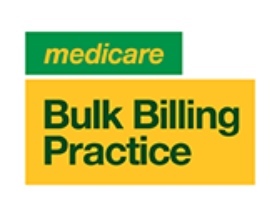Coughs, Colds & Infections
Coughs
Although it is upsetting to hear your child cough, coughing helps clear away phlegm from the chest or mucus from the back of the throat.
Children often cough when they have a cold because of mucus trickling down the back of the throat. If your child is feeding, drinking, eating and breathing normally and there’s no wheezing, a cough is not usually anything to worry about.
If your child has:
- A bad cough that will not go away, make time to see one of our doctors
- A high temperature and are breathless, they may have a chest infection
If a chest infection is caused by bacteria rather than a virus your doctor will prescribe antibiotics to clear up the infection. Antibiotics will not soothe or stop the cough straight away.
If a cough continues for a long time, especially if it is worse at night or is brought on by your child running about, it could be a sign of asthma.
Some children with asthma also have a wheeze or breathlessness. If your child has any of these symptoms take them to the doctor. If your child seems to be having trouble breathing, seek medical attention urgently or call an ambulance, even if it is the middle of the night.
Sore Throats
Most sore throats clear up on their own after a few days. Sore throats are often caused by viral illnesses such as colds or a flu.
Your child’s throat may be dry and sore for a day or two before a cold starts. Infant or child dosage paracetamol or ibuprofen can be given to reduce the pain.
If your child has a sore throat for more than four days, has a high temperature and is generally unwell, or is unable to swallow fluids or saliva, see your doctor.
Colds
It is normal for a child to have eight or more colds a year. This is because there are hundreds of different cold viruses and young children have no immunity to any of them as they have never had them before. Gradually, they build immunity and get fewer colds.
Most colds get better in five to seven days. Here are some suggestions on how to ease the symptoms in your child:
- Increase the amount of fluids your child normally drinks.
- If your child has a fever, pain or discomfort, paracetamol or ibuprofen can help. There are child and infant products, that will state on the packet, how much you should give children of different ages.
- Encourage the whole family to wash their hands regularly to stop the cold from spreading.
Ear Infections
Ear infections are common in babies and small children. They often follow a cold and sometimes cause a temperature. A child may pull or rub at an ear, but babies cannot always tell where pain is coming from and may just cry and seem uncomfortable.
If your child has an earache but is otherwise well, give them infant or child dose paracetamol or ibuprofen for 12-24 hours. Do not put any oil, eardrops or cotton buds into your child’s ear unless your doctor advises you to do so.
Most ear infections are caused by viruses, which cannot be treated with antibiotics. They will just get better by themselves.
After an ear infection, your child may have a problem hearing for two to six weeks. If the problem lasts for any longer than this, ask your doctor for advice.
Glue Ear
Repeated middle ear infections (otitis media) may lead to 'glue ear' (otitis media with effusion), where sticky fluid builds up and can affect your child’s hearing. This may lead to unclear speech or behavioural problems.
Your doctor will give you advice on treating glue ear.















